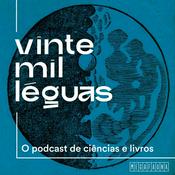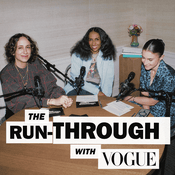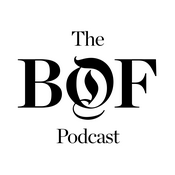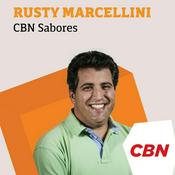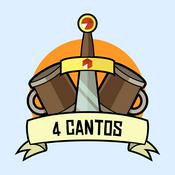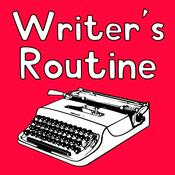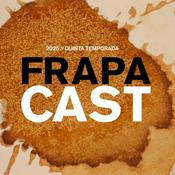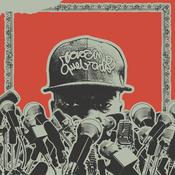282 episódios
OXO, Cuisinart, and Julia Child: The Secret (Accessible) History Behind Your Kitchen
10/2/2026 | 51minFor many people with disabilities, the kitchen can seem a deeply unfriendly place. From counters that require users to stand and cabinets that are often out of reach, to ovens that can’t be opened in mobility chairs and tools that are hard to grip or difficult to read—cooking can seem like an impossible challenge. But it doesn’t have to be this way. In fact, since the mid-1900s, researchers, designers, and people with disabilities have worked together to reimagine the kitchen in ways that have made it better for all of us. Listen in for this hidden history behind many of your favorite cooking tools, from OXO Good Grips to the Cuisinart food processor, as well as the inspiring stories of how today's blind and disabled cooks have hacked their kitchens to achieve both dinner deliciousness and culinary glory. All that, plus cameos from the household names who turn out to be accessibility legends: Betty Crocker and Julia Child!
Learn more about your ad choices. Visit podcastchoices.com/adchoices- We’re coming up to AvocadoFest 2026, otherwise known as the Super Bowl, when Americans get fully a fifth of their annual avocado allocation. But how did this humble fruit, originally named after testicles, get from its Mexican forest home to a tattoo on Miley Cyrus's upper arm? This episode, we unravel the avocado's amazing journey, a story that involves not only conquistadors and cartel violence, but also a Southern California postman and actress Angie Dickinson lounging in a white leotard. And we discover where the avocado is headed next—a place where it's known as the butter fruit, and often consumed in shake form. Listen in now for all this creamy green goodness and more. (encore)
Learn more about your ad choices. Visit podcastchoices.com/adchoices - Canned tomatoes are a perfect winter food. As you'll know from our tomato episode, the beautiful fruits in fresh aisle of the supermarket are mostly flavorless outside of the summer season—but the tomatoes that get packed in a can are cheap, readily available, and, most importantly, delicious year-round. This episode, we have the stories of how turtle poop, full English fry-ups, and an Italian romance helped turn the canned tomato into a pantry hero. Plus, are San Marzanos really the best tasting option out there? We've got the juicy tips you need to score the ultimate tomato fix, no matter the season!
Learn more about your ad choices. Visit podcastchoices.com/adchoices Is Your Cinnamon Fake? Where Does Kefir Come From? Plus: Why Is Citric Acid In Everything? Ask Gastropod!
16/12/2025 | 42minThe season for holiday baking is upon us, and before you spice up your cookies and pies, you’ll probably want to know: is most of the cinnamon on grocery store shelves actually fake? That’s one question we’re investigating this week on behalf of you, dear listeners, in the latest installment of our popular Ask Gastropod series! This episode, we've got the scoop on what's real when it comes to cinnamon—because your buns deserve the truth. We're also putting our detective hats on to figure out where in the world kefir comes from, in an epic tale that involves mummies, a prince, and a potential kidnapping. Finally, if you look at almost any label, from jam to ice cream to soda to sausage, you'll find one shared ingredient: citric acid. What on Earth is this additive doing in everything, how is its spread connected to a technology that has saved millions of lives—and is it safe to eat? Listen in for a festive feast of listener curiosity, and keep your awesome questions coming our way!
Learn more about your ad choices. Visit podcastchoices.com/adchoicesForget Plain Vanilla: You'll Never See The World's Favorite Flavor the Same Way Again
02/12/2025 | 50minToday, 'vanilla' often means boring, and yet the edible seedpod of this Central American orchid is one of the most expensive spices in the world, not to mention one of the most popular flavors globally. So how did this coveted bean get such a ho-hum reputation? Listen in this episode as Gastropod travels to vanilla's homeland in the highlands of Veracruz, Mexico, to investigate. It's a tale of botanical piracy, beaver butts, and ice-cream barges, in which an ingenious enslaved tween and the product of pulp paper waste combine to transform vanilla from a complex and sophisticated elite treat into the single-note synonym for dull. Plus, we meet the thrilling alternative vanillas we're all missing out on, and serve up the recipe for a vanilla tasting party that's guaranteed to make you fall back in love with the world's favorite flavor. You'll never see vanilla as plain again!
Learn more about your ad choices. Visit podcastchoices.com/adchoices
Mais podcasts de Arte
Podcasts em tendência em Arte
Sobre Gastropod
Food with a side of science and history. Every other week, co-hosts Cynthia Graber and Nicola Twilley serve up a brand new episode exploring the hidden history and surprising science behind a different food- or farming-related topic, from aquaculture to ancient feasts, from cutlery to chile peppers, and from microbes to Malbec. We interview experts, visit labs, fields, and archaeological digs, and generally have lots of fun while discovering new ways to think about and understand the world through food. Find us online at gastropod.com, follow us on Twitter @gastropodcast, and like us on Facebook at facebook.com/gastropodcast.
Site de podcastOuça Gastropod, 451 MHz e muitos outros podcasts de todo o mundo com o aplicativo o radio.net
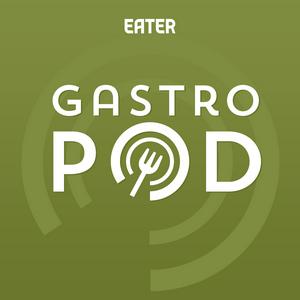
Obtenha o aplicativo gratuito radio.net
- Guardar rádios e podcasts favoritos
- Transmissão via Wi-Fi ou Bluetooth
- Carplay & Android Audo compatìvel
- E ainda mais funções
Obtenha o aplicativo gratuito radio.net
- Guardar rádios e podcasts favoritos
- Transmissão via Wi-Fi ou Bluetooth
- Carplay & Android Audo compatìvel
- E ainda mais funções


Gastropod
Leia o código,
baixe o aplicativo,
ouça.
baixe o aplicativo,
ouça.








